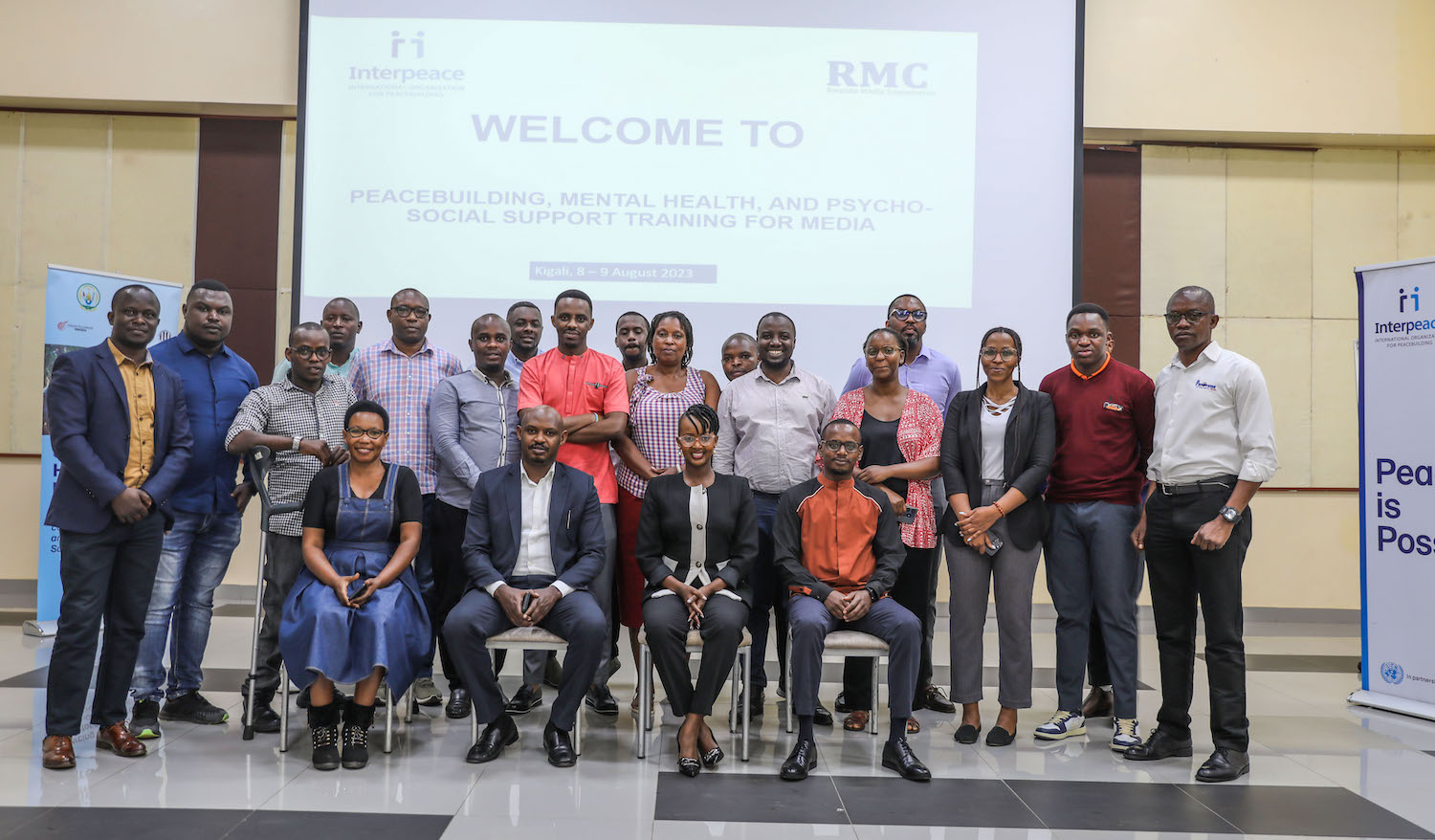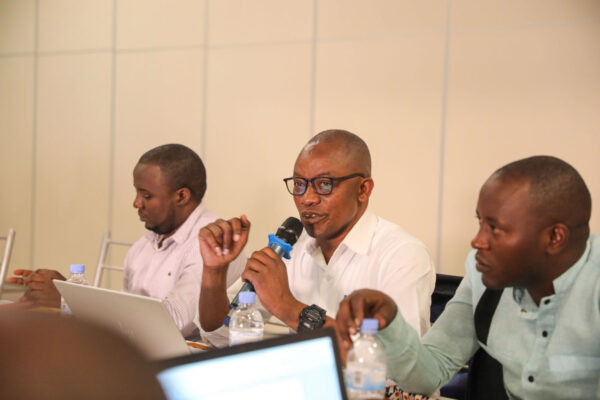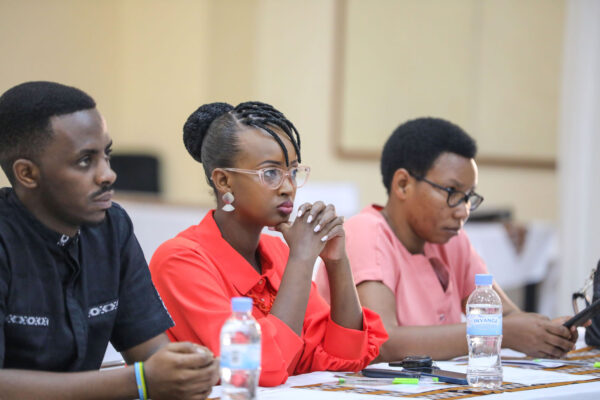Promoting mental health and psycho-social support (MHPSS) sensitive journalism for peacebuilding in Rwanda

The recent World Mental Health Report published by the World Health Organization (WHO) in 2022 highlights the low levels of health literacy regarding mental health as one of the major barriers undermining Mental Health and Psycho-social Support (MHPSS) worldwide. The media, both traditional and new, plays a pivotal role in dismantling these barriers by educating society, advocating, and raising awareness. Ironically, media professionals themselves often lack adequate knowledge and understanding of mental health.
As part of its holistic peacebuilding programme that focuses on MHPSS to promote societal healing and reconciliation in Rwanda, Interpeace organised a training session for journalists. The objective was to increase their knowledge, skills and understanding of MHPSS.
The two-day training took place in August 2023 and provided essential tools and skills to 26 participants from various local media outlets, ensuring their ability to produce professional MHPSS and peacebuilding-related content that adhere to ethical standards.
Media involvement in peacebuilding and MHPSS processes is paramount in Rwanda, where the population continues to grapple with mental health disorders stemming from the Genocide committed against the Tutsi nearly three decades ago.
The training featured theories, case studies, and practical exercises to deepen participants’ understanding of mental health and the ethical considerations that must guide their reporting. The participants commended the training for bolstering their capacity and igniting their willingness for mental health sensitive reporting.
Producing in-depth, well-researched programmes and reports will promote advocacy among various stakeholders, including government officials, experts, and donors, aiming to advance and influence mental health policies and practices in the country.
Oswald Mutuyeyezu, one of the most influential radio journalists, expressed his desire for regular workshops. “We have learnt a lot from this workshop. We have understood Rwanda's most current diagnosed mental health disorders/illnesses and the techniques and approaches required for reporting on them. While it may be too demanding to hold this training every month, I suggest it be organised at least every quarter to refresh our minds and knowledge,” suggested Mutuyeyezu.
Scovia Mutesi, one of the most influential independent female journalists, a social media influencer, and owner of the online newspaper “Mama Urwagasabo” and a YouTube channel, proposed expanding the training to include younger journalists to ensure the initiative's sustainability.
The participants committed to producing more content related to MHPSS and peacebuilding to educate communities and raise awareness. This will contribute to an increase in mental health service utilisation in the country, which currently stands at 5.3%. It will help combat the deep-rooted stigma and discrimination often faced by people living with mental health conditions, which hinders the demand for mental health care.

Interpeace organised the training workshop in partnership with the Rwanda Media Commission (RMC), the regulatory body for the media sector in Rwanda, responsible for building its capacity. Emmanuel Mugisha, RMC’s Executive Secretary, commended the partnership with Interpeace for organising this training. He further encouraged trained journalists to utilise the skills gained to foster their professionalism and fulfil their role as the fourth estate.
“We believe in your capacity and power to drive change. Therefore, we anticipate an increase in stories, documentaries and programmes that educate Rwandans about mental health and advocate for a strong and decentralised mental health system. This training lays the foundation for a strong and fruitful partnership between Interpeace and the media sector in promoting MHPSS and peacebuilding in Rwanda,” said Mugisha.

